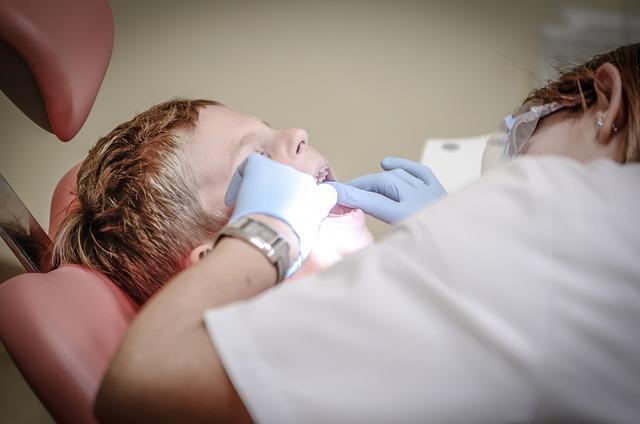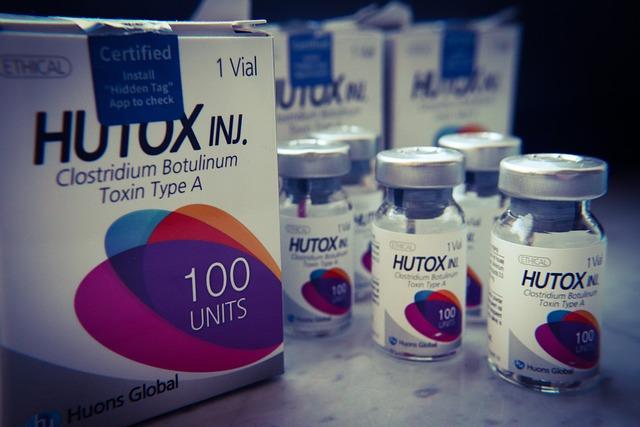Discover the transformative effects of Botox for bruxism through real success stories. Say goodbye to jaw clenching and teeth grinding for good!
1. Understanding Bruxism: Causes and Symptoms
Bruxism, also known as teeth grinding or jaw clenching, is a common condition that affects many individuals. It can be caused by a variety of factors and can lead to a range of symptoms. Understanding the causes and symptoms of bruxism is crucial in order to effectively manage and treat the condition.
Some common causes of bruxism include stress and anxiety, misaligned teeth, sleep disorders, and certain medications. Symptoms of bruxism can vary from person to person but may include headaches, jaw pain, tooth sensitivity, and worn-down teeth. If left untreated, bruxism can lead to more serious dental issues and overall discomfort.
It is important to consult with a healthcare professional if you suspect that you may be suffering from bruxism. They can provide you with a proper diagnosis and recommend treatment options to help alleviate symptoms and prevent further damage. Additionally, practicing stress-reducing techniques, maintaining good oral hygiene, and wearing a mouthguard at night can also help manage bruxism.
2. The Rise of Botox as a Treatment for Bruxism
Botox has emerged as a promising treatment option for individuals suffering from bruxism, a condition characterized by teeth grinding and jaw clenching. This non-invasive procedure involves injecting small doses of botulinum toxin into the jaw muscles to temporarily paralyze them, preventing involuntary grinding and clenching. The rise in popularity of Botox for bruxism can be attributed to its effectiveness and minimal side effects compared to traditional treatments.
One of the key benefits of using Botox for bruxism is its ability to provide long-lasting relief from symptoms. The effects of a single treatment can last up to 3-4 months, making it a convenient and effective solution for managing the condition. Additionally, Botox injections are quick and relatively painless, allowing patients to resume their normal activities immediately after the procedure. This makes it a popular choice for individuals looking for a non-invasive and efficient treatment option for bruxism.
Furthermore, Botox treatment for bruxism has been shown to not only alleviate symptoms but also improve the overall quality of life for patients. By reducing muscle tension in the jaw, Botox can relieve pain, headaches, and other discomfort associated with bruxism. This can result in better sleep quality, reduced stress levels, and improved oral health. Overall, signifies a shift towards more innovative and patient-centric approaches to managing this common condition.
3. Success Stories of Patients Finding Relief with Botox
Many patients have experienced tremendous success with Botox treatment, finding relief from various medical conditions.
Some of the success stories include:
- Patients with chronic migraines who have experienced a significant reduction in the frequency and intensity of their headaches after Botox injections.
- Individuals suffering from severe neck pain due to muscle spasms have found relief and improved mobility with Botox treatments.
- People with overactive bladder issues have reported fewer episodes of urgency and incontinence after receiving Botox injections.
4. How Does Botox Work to Treat Bruxism?
Botox works to treat bruxism by targeting the muscles responsible for jaw clenching and teeth grinding. When injected into specific areas, Botox blocks the signals sent from the nerves to the muscles, preventing them from contracting and reducing the intensity of grinding.
Over time, the effects of Botox on bruxism typically last for 3-4 months, with some individuals experiencing relief for up to 6 months. It is important to note that Botox treatment for bruxism does not cure the condition but can provide temporary relief and improve symptoms.
During the procedure, a healthcare professional will carefully map out the muscles involved in bruxism and inject Botox in precise locations. The injections are usually well-tolerated, with minimal discomfort and downtime. Results vary for each individual, but many patients report a significant reduction in jaw pain and teeth grinding after receiving Botox treatment.
5. The Benefits of Botox for Bruxism Compared to Traditional Treatments
Botox injections have shown to be a highly effective treatment for bruxism, with several benefits compared to traditional treatments:
- Botox targets the root cause of bruxism by relaxing the muscles that are responsible for grinding and clenching, providing more long-lasting relief compared to traditional methods.
- The treatment is minimally invasive and does not require surgery, making it a safer and less painful option for patients.
- Botox injections have been proven to reduce the frequency and intensity of bruxism episodes, leading to improved quality of life for those suffering from the condition.
Overall, Botox offers a convenient and effective alternative to traditional treatments for bruxism, with the added benefit of fewer side effects and a lower risk of complications.
6. Real-life Experiences: Testimonials from Botox for Bruxism Patients
Many patients have shared their positive experiences with using Botox for bruxism. Here are some testimonials that highlight the effectiveness of this treatment:
- Rachel: “After years of suffering from jaw pain and headaches due to bruxism, Botox has been a game-changer for me. I noticed a significant reduction in teeth grinding and my symptoms have greatly improved.”
- Tom: “I was skeptical at first, but after trying Botox for my bruxism, I couldn’t be happier with the results. My jaw feels more relaxed, and I no longer wake up with soreness in my muscles.”
- Emily: “I was hesitant to try Botox, but I’m so glad I did. It has helped alleviate my bruxism symptoms and improved my overall quality of life. I highly recommend it to anyone suffering from teeth grinding.”
In conclusion, Botox for bruxism has shown remarkable success in relieving jaw pain and grinding. Its revolutionary approach offers a promising solution for sufferers seeking lasting relief. If you’re struggling with bruxism, consider consulting with a healthcare professional to see if Botox treatment may be right for you.



